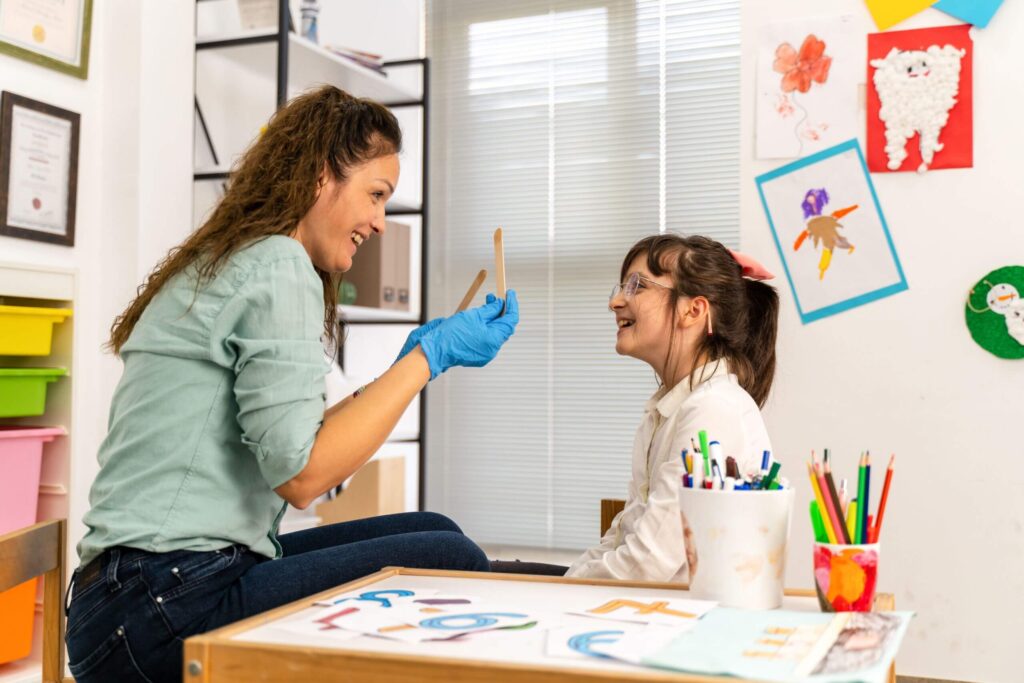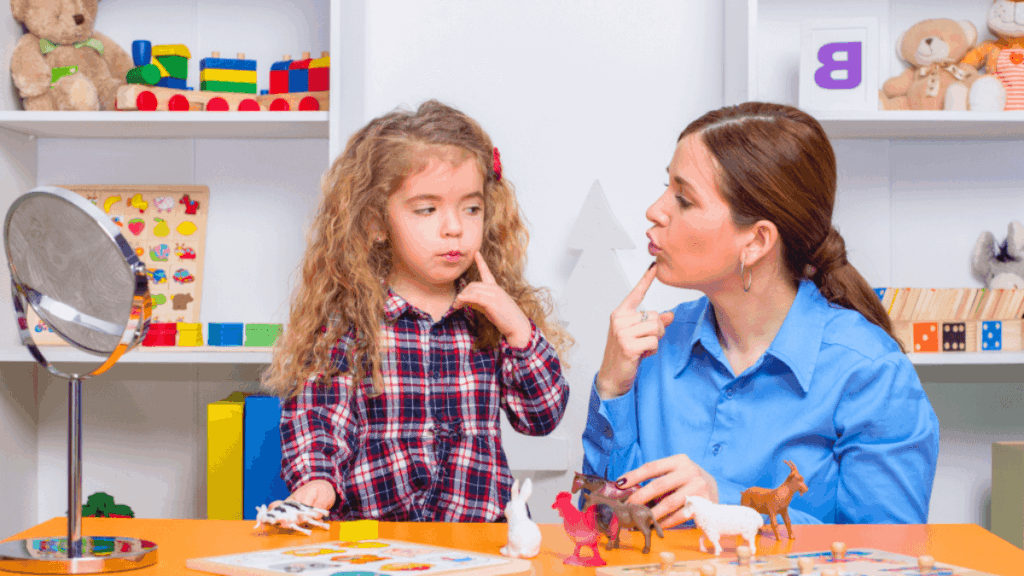In today’s fast-paced world, parents are increasingly aware of the importance of holistic child development. This encompasses not just academic skills, but also social, emotional, and physical growth. At Castle Hill Speech and Occupational Therapy (OT), a comprehensive approach is taken to ensure that children receive the support they need to thrive. This guide aims to provide parents with insights into how speech therapy and occupational therapy can work together to foster holistic development in children.
Understanding Holistic Child Development
Holistic child development refers to nurturing a child’s overall growth, including cognitive, emotional, social, and physical aspects. It is an approach that recognises the interconnectedness of these domains, emphasising that each area influences the others. For example, a child’s ability to communicate effectively can impact their social interactions and emotional well-being. This comprehensive perspective acknowledges that a child is not merely a collection of separate skills but a complex individual whose development is shaped by a myriad of experiences and interactions.
Furthermore, the environment plays a pivotal role in holistic development. Children thrive in settings that provide rich stimuli and opportunities for exploration. Engaging with nature, participating in group activities, and having access to diverse learning materials can significantly enhance a child’s growth across all domains. Parents and educators are encouraged to create nurturing environments that foster curiosity and creativity, allowing children to explore their interests and develop their unique identities.

The Importance of Early Intervention
Research has consistently shown that early intervention can significantly improve outcomes for children facing developmental challenges. The earlier a child receives support, the better their chances of developing essential skills. This is where speech therapy and occupational therapy play a crucial role. Early identification of developmental delays enables tailored interventions that can address specific needs, ultimately leading to more positive long-term results.
Speech therapy focuses on improving communication skills, while occupational therapy helps children develop the necessary skills for daily living. Together, these therapies can address various developmental concerns, ensuring that children are equipped to navigate their environments successfully. For instance, a child struggling with fine motor skills may benefit from occupational therapy techniques that enhance their dexterity, while simultaneously engaging in speech therapy to bolster their verbal expression. This integrated approach ensures that children receive comprehensive support that addresses multiple facets of their development.
Key Areas of Development
When considering holistic child development, it is essential to understand the key areas that need attention:
- Cognitive Development: Involves problem-solving, memory, and the ability to understand and process information.
- Emotional Development: Encompasses self-regulation, empathy, and the ability to express feelings appropriately.
- Social Development: Focuses on building relationships, understanding social cues, and developing communication skills.
- Physical Development: Involves fine and gross motor skills, coordination, and overall physical health.
Each of these areas is interdependent, meaning that growth in one domain can positively influence another. For example, engaging in physical play not only enhances a child’s physical abilities but also fosters social skills as they learn to cooperate and communicate with peers. Similarly, cognitive challenges can affect emotional health; thus, addressing learning difficulties with appropriate strategies can lead to improved self-esteem and resilience. By recognising the interplay between these developmental areas, caregivers and educators can create more effective strategies that support a child’s holistic growth.

The Role of Speech Therapy
Speech therapy is a vital component of holistic child development, particularly for children who may struggle with communication. It involves working with a qualified speech therapist to address various speech and language issues. These can range from articulation difficulties to more complex language disorders.
Enhancing Communication Skills
Effective communication is fundamental for a child’s success in school and social settings. Speech therapy can help children develop their ability to express themselves clearly and understand others. This not only aids in academic achievement but also fosters positive social interactions.
Therapists use a variety of techniques tailored to each child’s needs, including play-based activities, storytelling, and interactive games. These methods make learning enjoyable and engaging, helping children to develop their skills in a supportive environment.
Addressing Specific Challenges
Children may face a range of challenges that speech therapy can help address:
- Articulation Disorders: Difficulty pronouncing sounds correctly.
- Language Delays: Struggles with understanding or using language effectively.
- Social Communication Issues: Difficulty in understanding social cues or engaging in conversations.
By identifying and addressing these challenges early, parents can ensure that their children develop the necessary skills to communicate effectively.
The Role of Occupational Therapy
Occupational therapy complements speech therapy by focusing on the skills needed for daily living. This includes fine motor skills, self-care tasks, and sensory processing. A child’s ability to perform these tasks is crucial for their independence and confidence.
Developing Fine Motor Skills
Fine motor skills are essential for a variety of activities, from writing to buttoning a shirt. Occupational therapists use engaging activities to help children strengthen these skills. This may include arts and crafts, puzzles, and other hands-on tasks that promote dexterity and coordination.
As children improve their fine motor skills, they gain greater control over their movements, which can lead to increased confidence in their abilities. This is particularly important for children who may struggle with tasks that their peers find easy.
Supporting Daily Living Skills
Occupational therapy also focuses on helping children develop essential daily living skills. This includes:
- Self-Care: Teaching children how to dress, groom, and manage personal hygiene.
- Play Skills: Encouraging cooperative play and turn-taking with peers.
- School Readiness: Preparing children for the demands of the classroom environment.
By equipping children with these skills, occupational therapy fosters independence and prepares them for future challenges.

Integrating Speech and Occupational Therapy
When speech therapy and occupational therapy are integrated, children receive a comprehensive approach to their development. This collaboration can lead to more significant improvements across various domains. For instance, a child who struggles with communication may also have difficulties with fine motor skills, which can hinder their ability to write or participate in group activities.
Collaborative Goal Setting
At Castle Hill Speech and OT, therapists work together to set collaborative goals for each child. This ensures that both speech and occupational therapy objectives align, creating a cohesive plan that addresses all areas of development. Parents are also involved in this process, providing valuable insights into their child’s strengths and challenges.
By having a unified approach, children can experience more consistent support, leading to better outcomes. For example, a child may work on improving their articulation while simultaneously developing the fine motor skills needed for writing. This integrated approach maximises the benefits of both therapies.
Creating a Supportive Environment
Creating a supportive environment at home is crucial for reinforcing the skills learned in therapy. Parents can play an active role by incorporating therapeutic activities into daily routines. This might include:
- Encouraging storytelling during family time to enhance language skills.
- Incorporating play-based activities that promote fine motor development.
- Engaging in conversations that foster social skills and emotional understanding.
By actively participating in their child’s development, parents can help reinforce the skills learned in therapy and create a nurturing environment for growth.
Finding the Right Support
Choosing the right speech and occupational therapy services is essential for ensuring that children receive the best possible support. Castle Hill Speech and OT is dedicated to providing tailored therapy services that meet the unique needs of each child.
Qualified Professionals
At Castle Hill, a team of qualified and experienced therapists work collaboratively to deliver high-quality care. Each therapist brings a wealth of knowledge and expertise, ensuring that children receive the most effective interventions. Parents can feel confident knowing that their child is in capable hands.
Individualised Therapy Plans
Every child is different, and therapy plans should reflect their individual needs. Castle Hill Speech and OT develops personalised therapy plans that take into account each child’s strengths, challenges, and interests. This ensures that therapy is engaging and relevant, maximising the potential for success.
Conclusion
Holistic child development is a multifaceted process that requires a comprehensive approach. By integrating speech therapy and occupational therapy, parents can provide their children with the support they need to thrive in all areas of life. Early intervention, collaboration between therapists, and active parental involvement are key components of this journey.
Castle Hill Speech and OT is committed to helping children reach their full potential through tailored therapy services. By fostering communication skills, developing daily living abilities, and creating a supportive environment, parents can play an integral role in their child’s holistic development. With the right support, every child can flourish.
See Also – Castle Hill Hand Therapy: What to Expect from Your First Session

